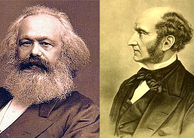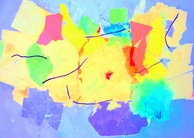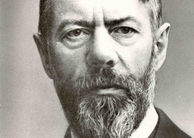|
Philosophy
Page 5/6 | Showing results 61 - 75 of 85
2014, Vol. 6 No. 03
This paper is about the numbing of man’s critical impulse brought about by consumer society, a society obsessed with speed, and is characterized by a constant consumption of products—of good things turning into goods, of culture with... Read Article »
2014, Vol. 6 No. 03
The place of multiculturalism in a liberal democracy continues to be a contentious question and one with which the liberal democratic state must constantly grapple. Two differing conceptions of the way the state should conceive of multicultural... Read Article »
2007, Vol. 2 No. 1
It is common to think of mythical heroes as being "larger than life." The stories of their legendary pursuits put these warriors on a level above that of the mere common man. The cosmic insignificance of the normal human being is also suggested... Read Article »
2013, Vol. 9 No. 2
Recent advancements in medicine have resulted in technology that allows us to have a better understanding of the essence of life. In turn, this has allowed us to more precisely identify the moment of death through certain criteria, whether through... Read Article »
2013, Vol. 5 No. 11
This essay compares Karl Marx’s and J.S. Mill’s understandings of freedom and their analyses of the impediments to its realization. First, this essay argues that the two philosophers share the same premise that progress is possible and... Read Article »
2013, Vol. 5 No. 10
"The sense of the world must lie outside the world. In the world, everything is as it is, and everything happens as it does happen: in it no value does exist-and if it did exist it would have no value. If there is any value that does have value,... Read Article »
2012, Vol. 4 No. 10
As humans, we are compelled to ask the questions, why do we exist? How do we exist? Even, how can I know that I am using this existence in the correct way and with the right intentions? Even the earliest of the ancient philosophers pondered these... Read Article »
2012, Vol. 4 No. 07
Addressing finitude as it relates to existence and community, Jean Luc Nancy and Martin Heidegger recognize finitude to be both the impossibility of being at one with oneself and the radical fragmentation of Being, in terms of mortality. Nancy contends... Read Article »
2012, Vol. 4 No. 05
The project of just war theory has enjoyed a long and distinguished pedigree, dating back to the ancient Greco-Roman philosophy. Over the centuries, it has, however, commanded a substantial influence from Christianity, enlightenment philosophy,... Read Article »
2012, Vol. 4 No. 03
Due to their different subject matter, the way in which social and natural science inquiries are conducted differs. For some, this difference is constituted in a greater reliance upon values in the social sciences than in the natural. This essay... Read Article »
2011, Vol. 3 No. 09
Within the milieu of American television, the vigilante serial killer, Dexter, stands alone with one of the largest audiences. Why should a violent antihero, who stalks and kills other serial killers, be so appealing to Americans with a democratic... Read Article »
2011, Vol. 3 No. 08
The Abrahamic God is an awesome god. He is omnipotent, omniscient, omni-benevolent, and omnipresent. Such a being truly deserves our reverence. But could we choose to revere such an all-powerful, all-knowing, all-good, and all-present being such... Read Article »
2011, Vol. 3 No. 07
Traditionally, human beings and tools are thought to be in a simple relationship with one another. All agency is located in the person, consequently making the human being the sole object of power which acts on its subject, the tool. As we move... Read Article »
2011, Vol. 3 No. 06
This project examines the role of the Left Hegelian school of philosophy in Crime and Punishment by Fyodor Dostoevsky. Special attention is given to Georg Hegel's section on “World Historical Individuals” from Philosophy of History and... Read Article »
2011, Vol. 3 No. 04
A large portion of Robert Nozick’s Anarchy, The State and Utopia is dedicated to refuting the theories of John Rawls. Specifically, Nozick takes issue with Rawls’ conception of distributive justice as it pertains to economic inequalities... Read Article »
Expedited Article Review
Submit an article and get a decision fast.
If you need a fast decision, INQUIRIES Journal offers expedited processing of your submission for a small fee. Depending on the expedited review option you choose, you can receive a decision in as few as 5-days.
In addition to a shorter review period, the fee supports the journal's continued operation and open-access publishing model. Standard submissions are always free. Submit Now » - Submit an Article to Inquiries Journal -
|












